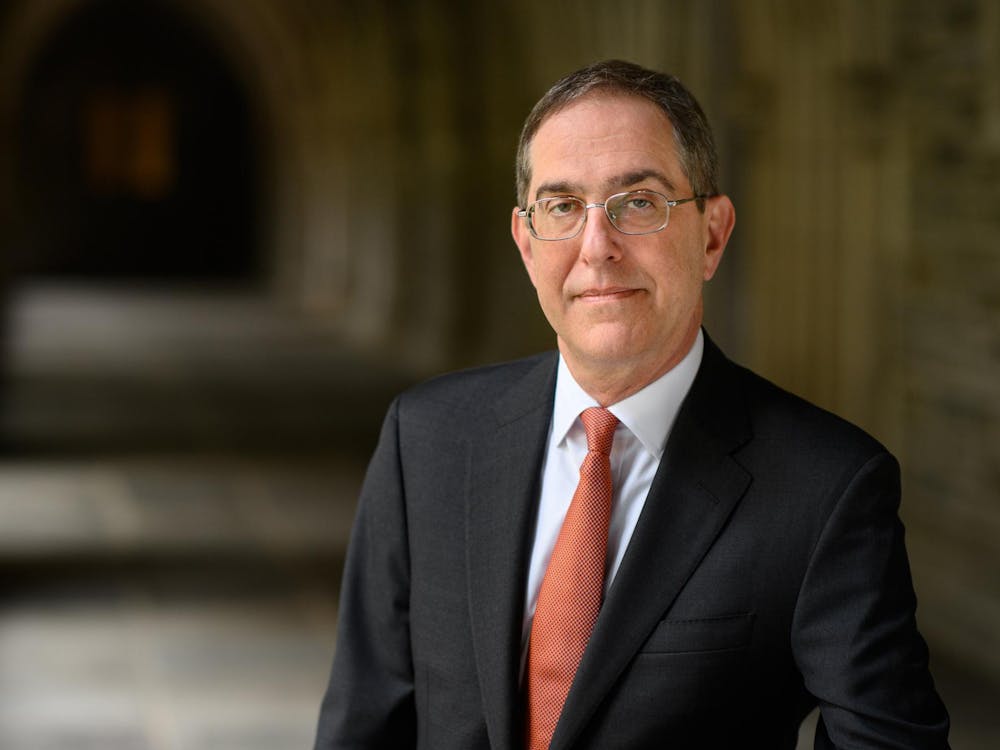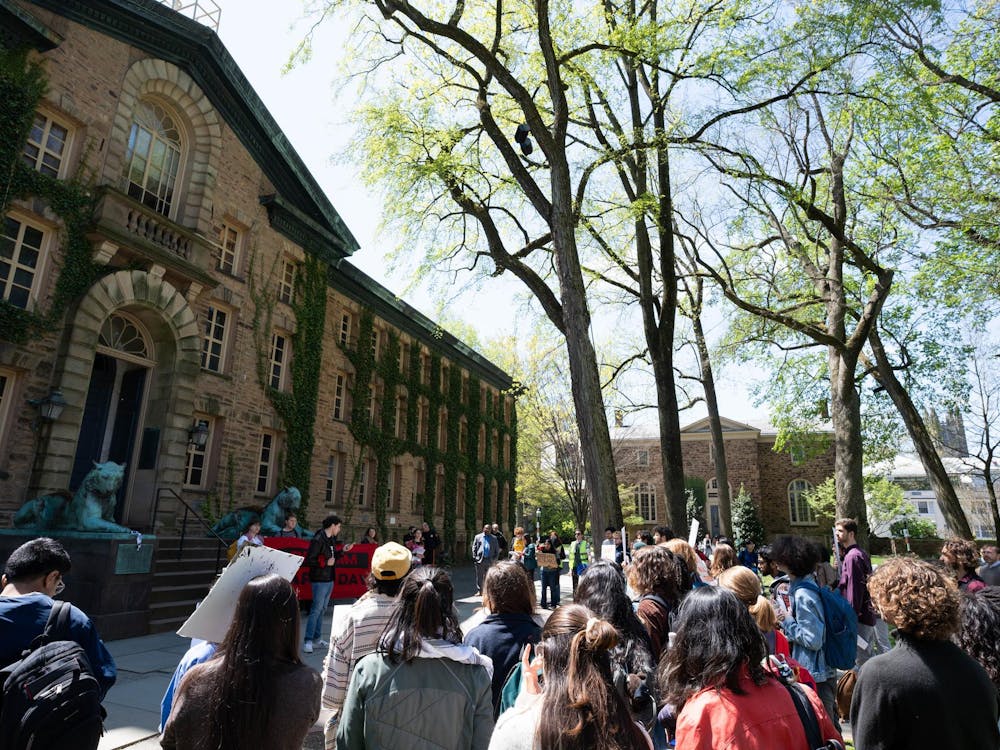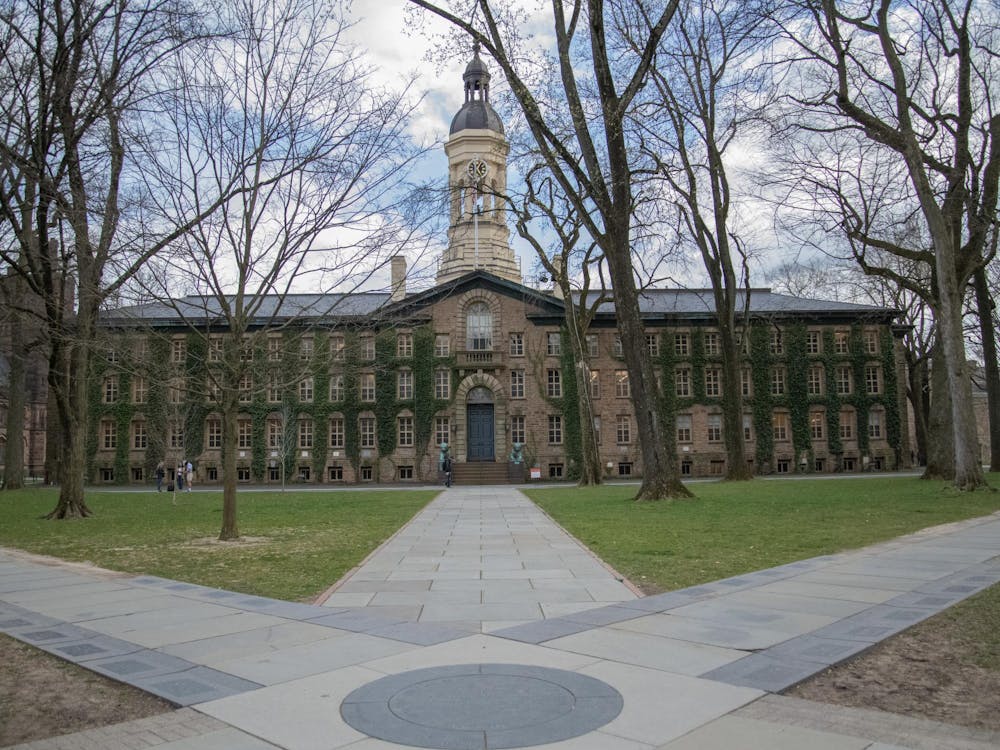Last week, guest columnist Theo Furchtgott (full disclosure: Furchtgott is a friend and fellow Governing Council member of the American Whig-Cliosophic Society) decried the “steep price” we Ivy Leaguers pay when seeking public office, since our top-ranked degrees are liable to come back and bite us in populist, anti-intellectual attack ads. While I agree with his assertion that receiving a rigorous education should not be seen as a bad thing, I think Furchtgott’s premise misidentifies the true root of this problem of perception. In my opinion, the reason for such bitterness against candidates with Ivy League degrees isn’t motivated by some vague jealousy or insecurity about one’s own intellect or education, but rather by the justly-perceived inaccessibility of these institutions.
Pointing out that Ivy-Leaguers make up close to 19 percent of the 114th Congress but only 0.4 percent of all American undergraduates — as Furchtgott is right to do — in fact confirms the very argument he is trying to rebut. While attack ads, such as those launched by Karl Rove against Elizabeth Warren, often indict a candidate as a professor or an Ivy League, out-of-touch snob, they often prove ineffective, at least in Congressional elections. We shouldn’t hate a candidate for being smart; in fact, we should value intellect as a necessary facet of bold leadership. But that’s not what I think most people are actually attacking, even though it is what the attack ads might be.
The real issue for most people is not a fear of others whom they believe to be smarter than themselves, on account of credentials like Ivy League degrees, but rather a fear of entrenching a system of asymmetrical access to top-quality education. That is to say, that for most people who buy into the distorted rhetoric of such ads, they do so not because they inherently see intellect as a bad thing, but because the term ‘Ivy League’ conjures up images of castles, of playgrounds for the elite and of an inaccessible education. There’s a reason the same charges aren’t made against candidates who went to, say, the University of California, Berkeley or Georgetown, even though these and other schools also provide a top-notch education.
As Noliwe Rooks, associate professor of Africana and feminist, gender and sexuality studies at Cornell, wrote in Time in 2013, the “biggest barrier to elite education” is the way in which elite universities — epitomized by the Ancient Eight — reinforce cycles of privilege in their admissions methodologies. While factors such as performance on standardized test scores — which has actually been found to be more strongly correlated with parents’ income than any other metric — affect underprivileged applicants to almost all four-year universities, the Ivy League in particular is also affected by reliance on legacy admissions. Whereas many public university systems — including the nation’s largest public university system, the University of California — have done away with legacy admissions, at the University, the legacy acceptance rate is close to four times higher than the general rate.
This, coupled with a lack of economic diversity highlighted recently by the Princeton Hidden Minority Council’s photo campaign, leads to more than just an image problem for hallowed institutions like ours; the problem of access is also a delegitimizing force to the electorate. Graduates of Ivy League schools are seen to have been admitted based on what boarding school they attended or what building is named after their ancestor, rather than on actual talent or merit. This is a huge problem in its own right, too big to do justice to here, but it is worth bringing up in the context of discussing the “Ivy League attack ad” problem in national politics. In the case of reversing the negative connotation associated with the Ivy League and turning it into a political plus, if we want to do better, we have to be better. The only way to fix the political or image problem that the Ivy League name carries with it is to truly be meritocratic, and open our doors to talent from all backgrounds.
This is an initiative that should be applauded. However, the image problem of Ivy League elitism — as opposed to elitism in other forms — will never fully go away until we completely fix the substantive problem behind it.
Ryan Dukeman is a sophomore from Westwood, Mass. He can be reached at rdukeman@princeton.edu.








